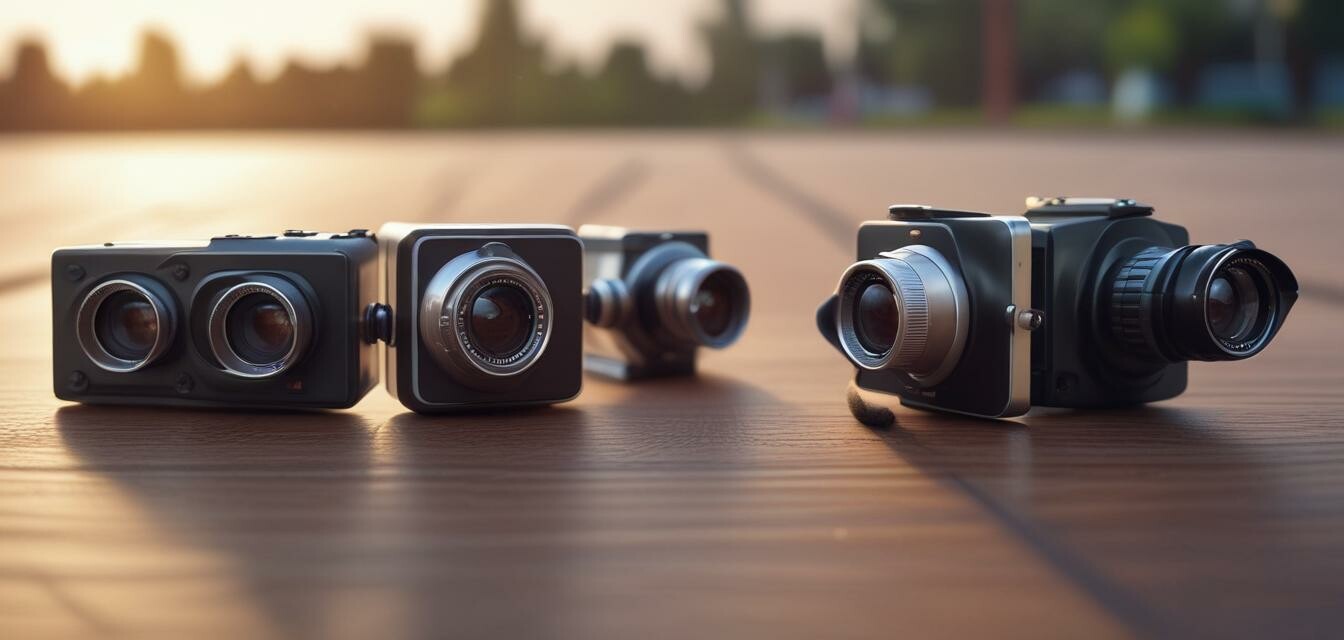
Analysing Dashcam Durability: What to Expect
Key Takeaways
- Durability impacts functionality and lifespan of dashcams.
- Different materials and build quality affect performance.
- Weather resistance and shockproof features are essential for longevity.
- Evaluate warranty options for added peace of mind.
- Consider user reviews for real-world durability insights.
When investing in a dashcam, one of the most critical factors to consider is its durability. In this article, we will delve into how durability influences the performance and longevity of various dashcam models. From materials used in their construction to design considerations, understanding what affects a dashcam's durability will help you make an informed decision.
Why durability matters in dashcams
Dashcams are often exposed to harsh conditions, including extreme temperatures, vibration from driving, and potential collisions. A durable dashcam ensures reliable functionality under these circumstances. Here's why you should prioritize durability:
- Performance under stress: Durable cameras handle shocks and vibrations better.
- Longer lifespan: Quality builds lead to better overall longevity.
- Image quality retention: Stability in performance affects recording quality.
Factors affecting dashcam durability
Several factors contribute to the durability of dashboard cameras:
Material quality
The materials used in a dashcam's construction play a significant role in its durability. Below are common materials and their impacts:
| Material | Impact on Durability |
|---|---|
| Plastic | Lightweight but can be prone to cracking in extreme conditions. |
| Metal | Provides robust protection but increases weight; excellent resistance to impacts. |
| Glass | Offers clarity for the lens but can shatter upon impact; often used in higher-end models. |
| Rubberized casings | Reduces impact forces and adds weather resistance; common for rugged models. |
Weather resistance
Dashcams that are weather-resistant can operate effectively in various conditions. This is particularly important for users in areas that experience:
- Heavy rain
- Snow
- Extreme heat
- Freezing temperatures
Check for IP ratings (Ingress Protection) such as IP65 or IP68 which indicate the camera's resistance to dust and water.
Shock and vibration resistance
A dashcam that can withstand shock and vibration will reduce the chances of damage during an accident or while driving over rough terrain. Features to consider include:
- G-Sensor technology that helps save footage during collisions.
- Mounting options that reduce vibration transfer.
Testing dashcam durability
Before purchasing a dashcam, look for third-party reviews and tests that assess durability. Common tests include:
- Drop tests from various heights
- Extreme temperature tests
- Water submersion tests
These tests can offer insights into how a dashcam may perform under real-world conditions.
Warranty and customer support
When evaluating the durability of a dashcam, keep in mind the warranty provided by the manufacturer. A sturdy warranty can give you confidence in the product's durability. Look for:
- Length of warranty
- Coverage details (accidental damage, etc.)
- Customer service responsiveness
Real-user feedback on dashcam durability
Another excellent source for assessing durability is customer feedback. Check through user reviews on product pages, especially focusing on concerns regarding:
- Durability issues after extended use
- Performance under diverse environmental conditions
Conclusion
When selecting a dashcam, understanding the importance of durability can significantly impact its performance and longevity. By considering build material, weather resistance, shock resistance, user feedback, and warranty options, you can choose a model that is both reliable and suited to your driving needs. For a more detailed comparison of dashcams and to explore various features, visit our Feature Comparisons section.
Pros
- Enhanced reliability in various conditions
- Increased longevity of the device
- Better footage quality retention
- Increased user confidence
Cons
- Potentially higher cost for durable models
- Bulky designs may not fit all vehicles
- Some durable materials may add weight
Tips for beginners
- Research durability ratings before purchasing.
- Read reviews focused on real-world use to gauge performance.
- Consider how you will be using the dashcam regularly.
- Don’t forget to check the warranty for added assurance.
